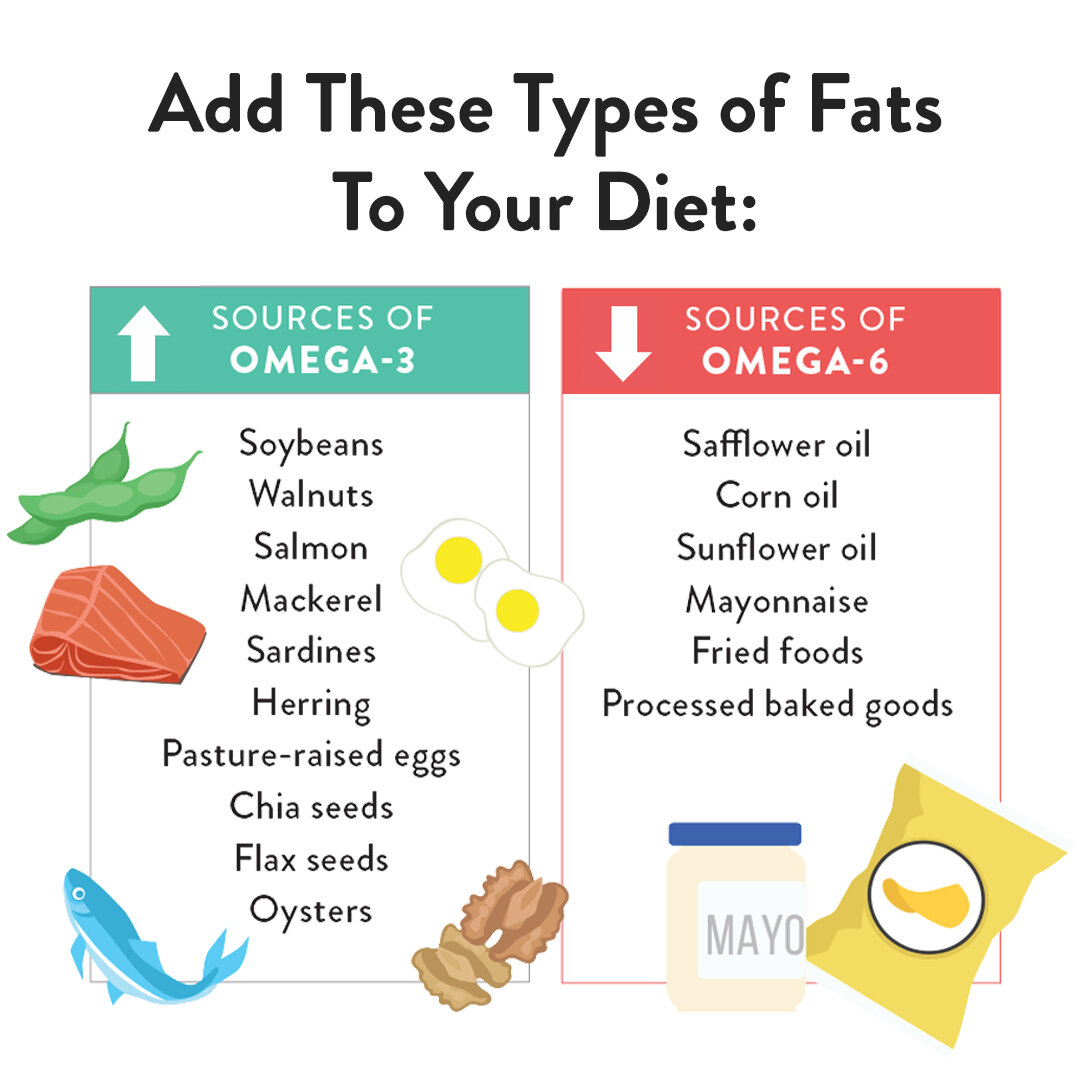Let’s talk about dietary fats.
Although they tend to get a lot of flack, the truth is, fats are essential for your body to thrive! They help support joint health, nutrient absorption, healthy hormones, digestion and, as a bonus, keep your nails, skin and hair looking fresh.
With the right knowledge, you don’t have to be freaked out about eating fats. So, let’s break down what to consider when adding them to your diet.
Fats to consume in moderation:
These fats will increase the LDL levels in your blood, which is essentially “bad” cholesterol when consumed in excess.
-
Saturated Fats – are those found in most animal byproducts like high-fat, processed meats or high-fat dairies like cheese and butter.
-
Trans Fats – another type of saturated fat that’s man-made and derived from vegetable oils, often found in highly processed foods (cheaper alternative to using butter and high-quality oils).
Fats that get the okay:
These fat sources can help reduce LDL levels (“bad cholesterol”), while simultaneously increasing HDL levels (“good cholesterol”).
-
Unsaturated Fats – labeled as “good fats” most of the time! Includes fats like olive oil, avocado and whole eggs.
Omega-3s and Omega-6s:
Your body doesn’t naturally produce either of these polyunsaturated fats, so you have to source them from our diets!
-
Omega-3s – the star of the show when it comes to healthy fats, as they help improve joint health and reduce inflammation, among other benefits. Can be sourced from fatty fish (salmon, mackerel and sardines), flax, walnuts or fish oil.
-
Omega-6s – more common in a traditional western diet. Comes from cooking oils like sunflower, palm, soybean and canola oils. Present in a lot of processed foods, which are often go-tos for convenience.

Still worried about making the right choices when it comes to consuming fat? Learn more about one-on-one online nutrition coaching here!

